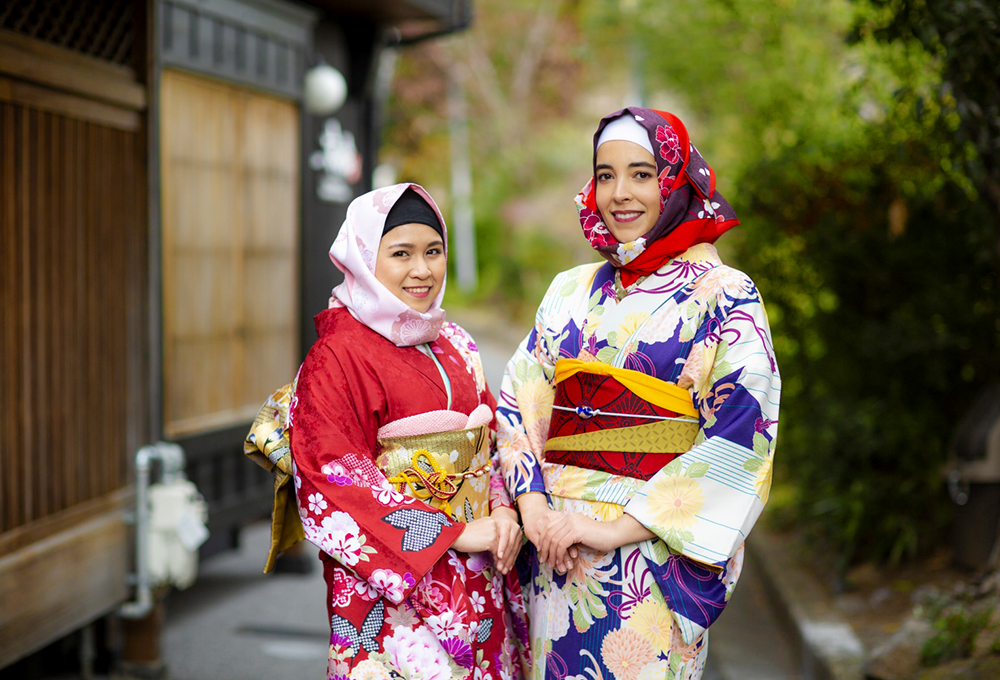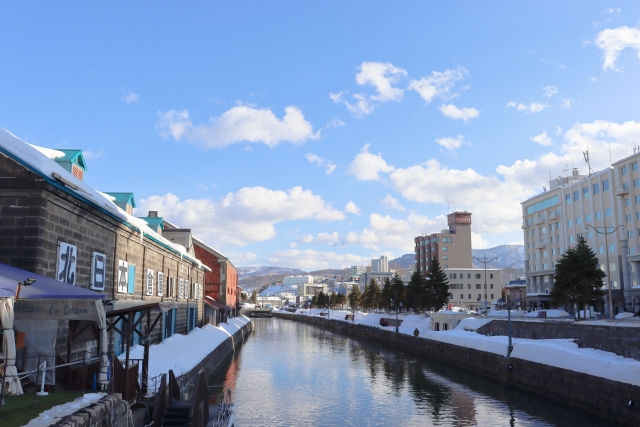This post is also available in: 日本語 Indonesia
Written by: Shinya Yokoyama
International Tourists Can’t-Wait to Come to Japan
Japan’s government announced that they will do a demonstration in accepting international tourists from four designated countries in May, and is planning to accept more international tourists from a wider range of countries from June 10th with special conditions (have to be on a package tour managed by a recognized travel agent recognized in Japan, etc).
Among them, international tourists who are eagerly planning to visit Japan commented such as “Japan’s immigration easing measures are too strict” or “(border relaxation) response is slow” which become a topic on social media.
See Also
Japan Considers Gradually Open The Border Starts From June 10

International tourists wearing Kimono hijab
Countries in Europe and Southeast Asia have eased new entry this year and have entered a system to accept international tourists by considering the infection measurements that boost the economy and the daily lives to be likely to return back to normal.
Compared to those countries, the process of relaxing the border is relatively slow in Japan, in addition to the application of some conditions which are considered strict by some people.
The History of Japan May Be One Of The Reason
“Sakoku” is a word often heard when talking about the history of Japan. “Sakoku” refers to the isolation that limits relations with other countries. Japan continued to be isolated for about 200 years from the 17th century to the 19th century. At that time, it was thought that paganism needed to be eliminated in order to maintain Japan’s feudal system and Japan’s original culture.
In the 21st century, Japan again to be isolated due to the outbreak of the novel coronavirus. Even though the number of deaths due to COVID-19 in Japan is lower than that in a single month in the United States and even if the corona measures have produced outstanding results in developed countries, Japan still feels uneasy.
Actually, the history of Japan might give a huge impact on the process of relaxing the border.

One of the famous travel destinations for international tourists, Otaru (Hokkaido)
Christianity was introduced to Japan in the middle of the 16th century and then spread throughout the 17th century. At that time, religions other than Buddhism were recognized in Japan, but Christianity, which was introduced from distant Europe and spread rapidly, was treated as paganism.
The Japanese have the property of being extremely afraid of being “different” from something that is not found in everyday life. This is because the Yamato people make up the majority of the people in Japan and are generally homogeneous.
As a result, the Japanese are said to be the most high-context people in the world and tend to take much time to accept something different from themselves, something different from everyday life, different values, and different religions.
The concept of “diversity” that is perceived globally, is accepted in Japan with a sense of incongruity. There are various theories about this, but it is thought that the fact that Japan is an island country has a great influence.
Countries on the continent are always sensitive to aggression from neighboring countries. On the other hand, Japan is an island country that is far from the continent which makes it has a low risk to fear from neighboring countries. Therefore, the Japanese were blessed with rich land without being attacked by other countries until the middle of the 20th century.
View this post on Instagram
The Japanese government has announced that it will gradually reopen the border from June. This is, so to speak, the beginning of the end of the COVID-19 isolation. Travelers from abroad expect the long-awaited “Visit Japan” to start again, but Japan will not have changed much from before the pandemic even actually it has to.
If it is changing, Japan is in a bargain state. The yen has fallen by more than 20% in the US dollar since before the pandemic. The quality of food, hospitality, home appliances, etc. that Japan is proud of remains the same, and it is a great opportunity to buy in foreign currency.
View this post on Instagram
What We Can Do as International Tourists Visiting Japan
Each country has its own way of solving something and Japan has the characteristic to be careful in taking steps which makes it somehow slower than other countries. As introduced above, it might be correlated with the history of Japan so let’s respect it as it is.
Another important thing is, that we have to prove that we can obey the infection measurements as announced by the government thoroughly when traveling within Japan, such as making sure to wear a mask wherever we go and disinfecting our hands.
When in Rome, do as the Romans do.
It is important to adapt to the local customs so the locals can accept international tourists, different cultures, etc. way easier.
See Also


